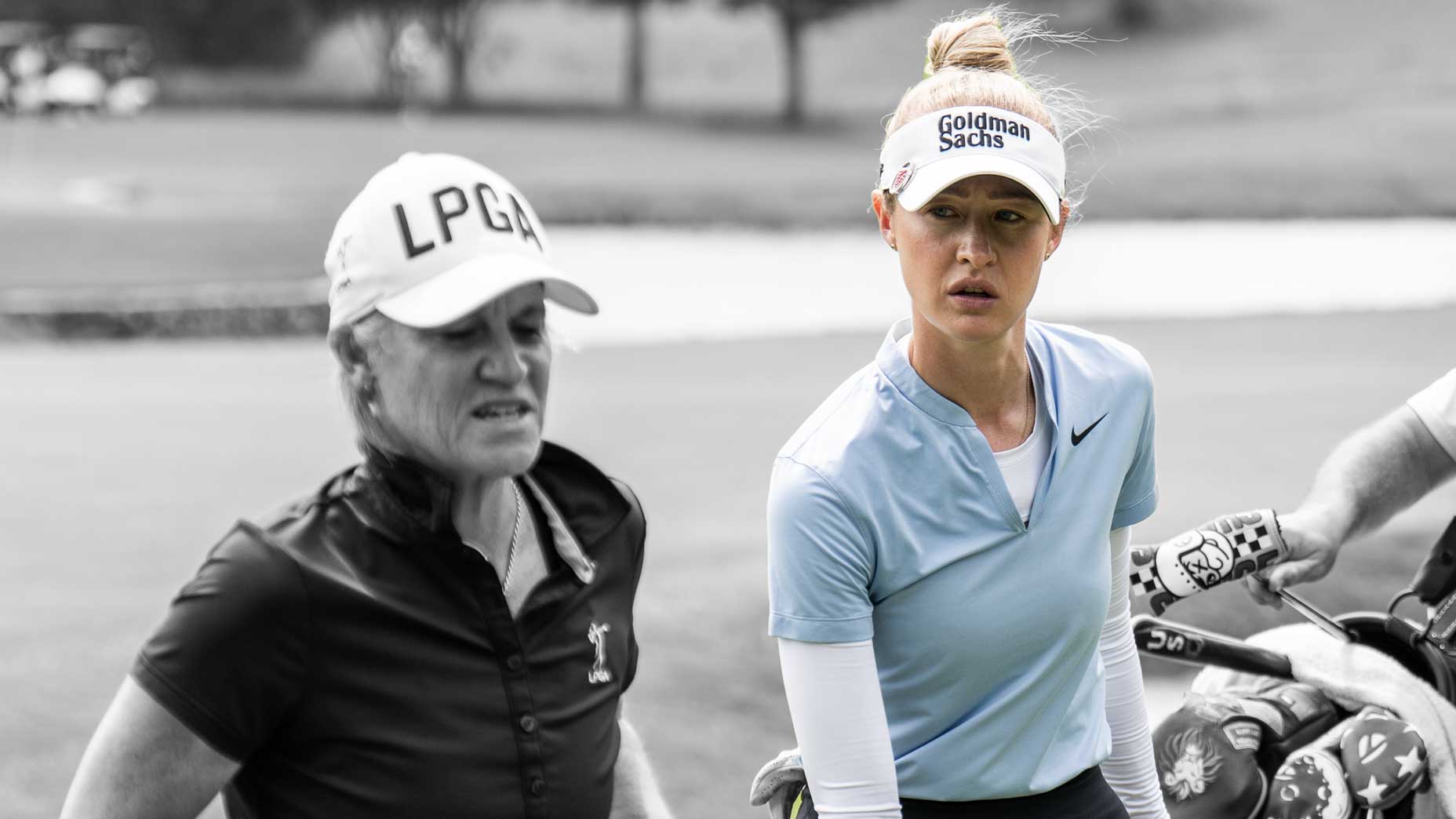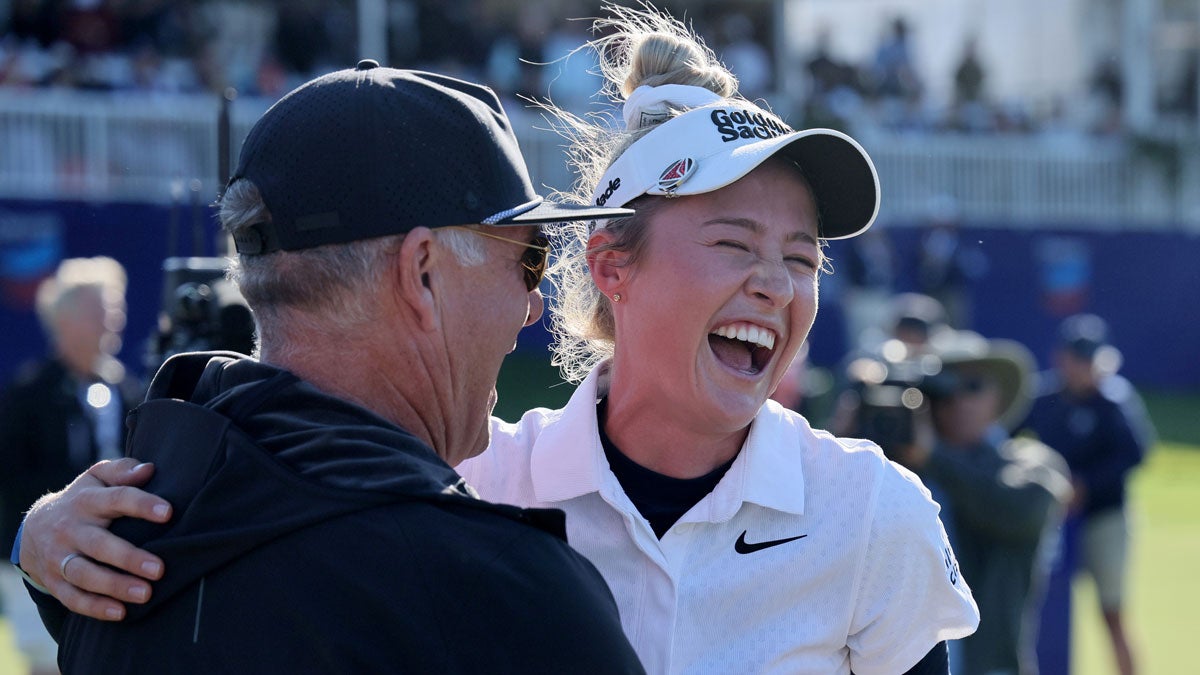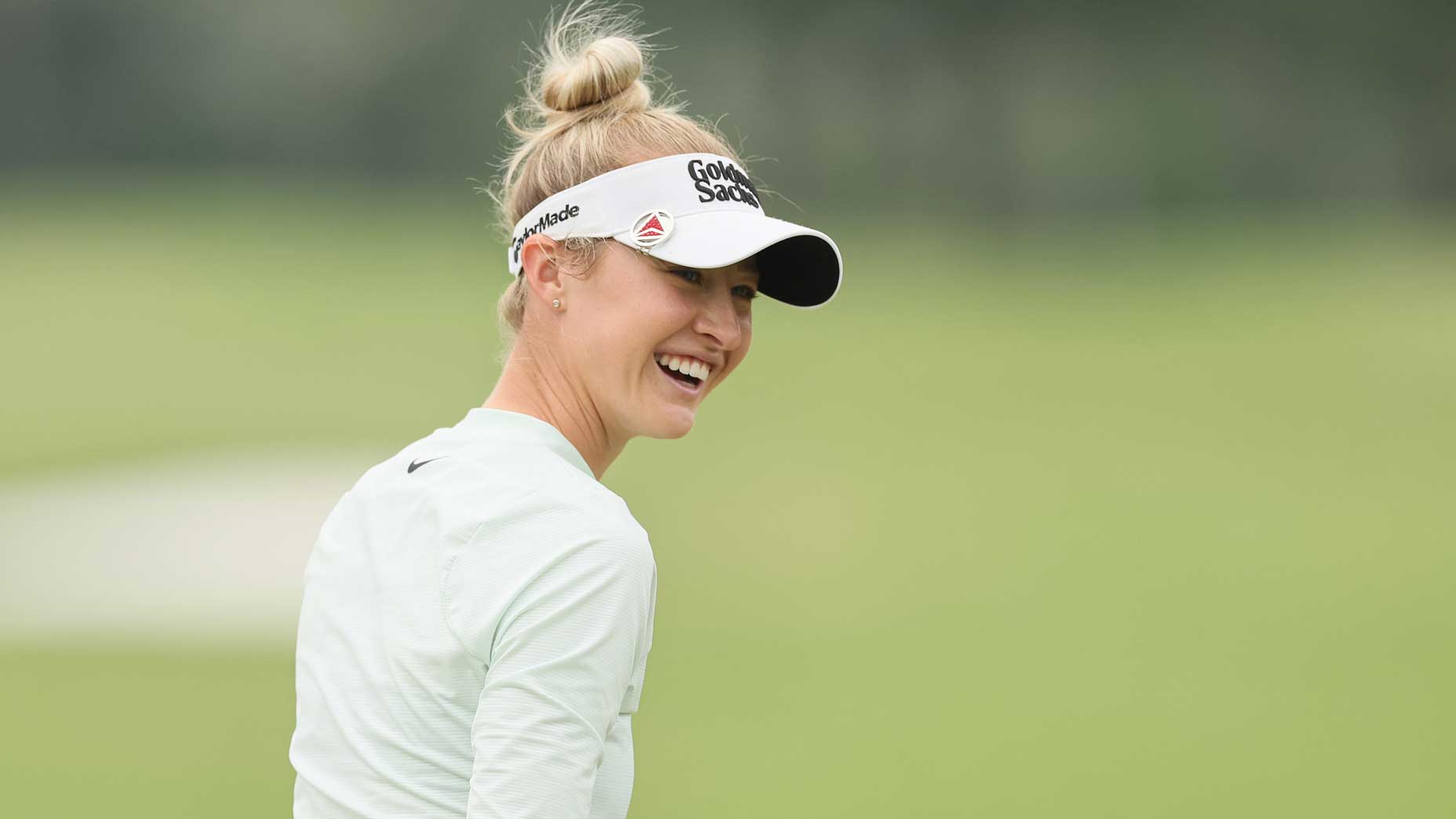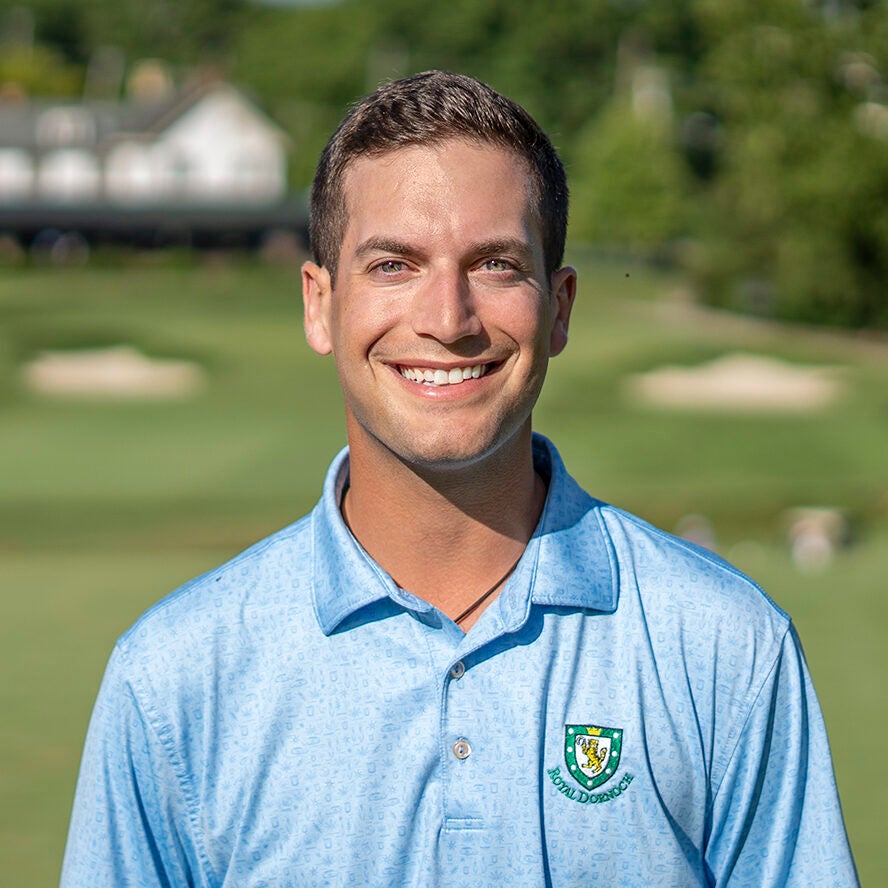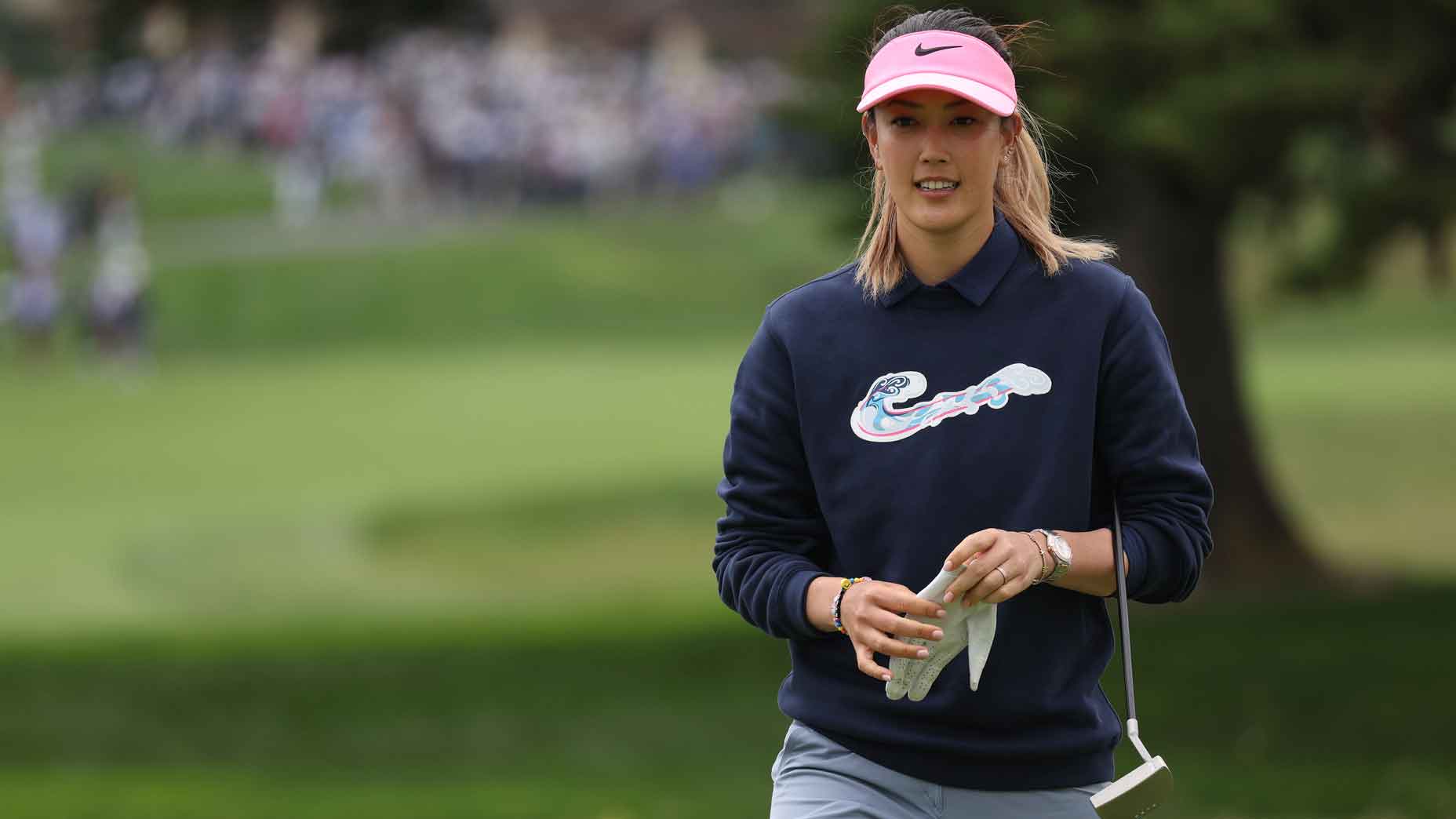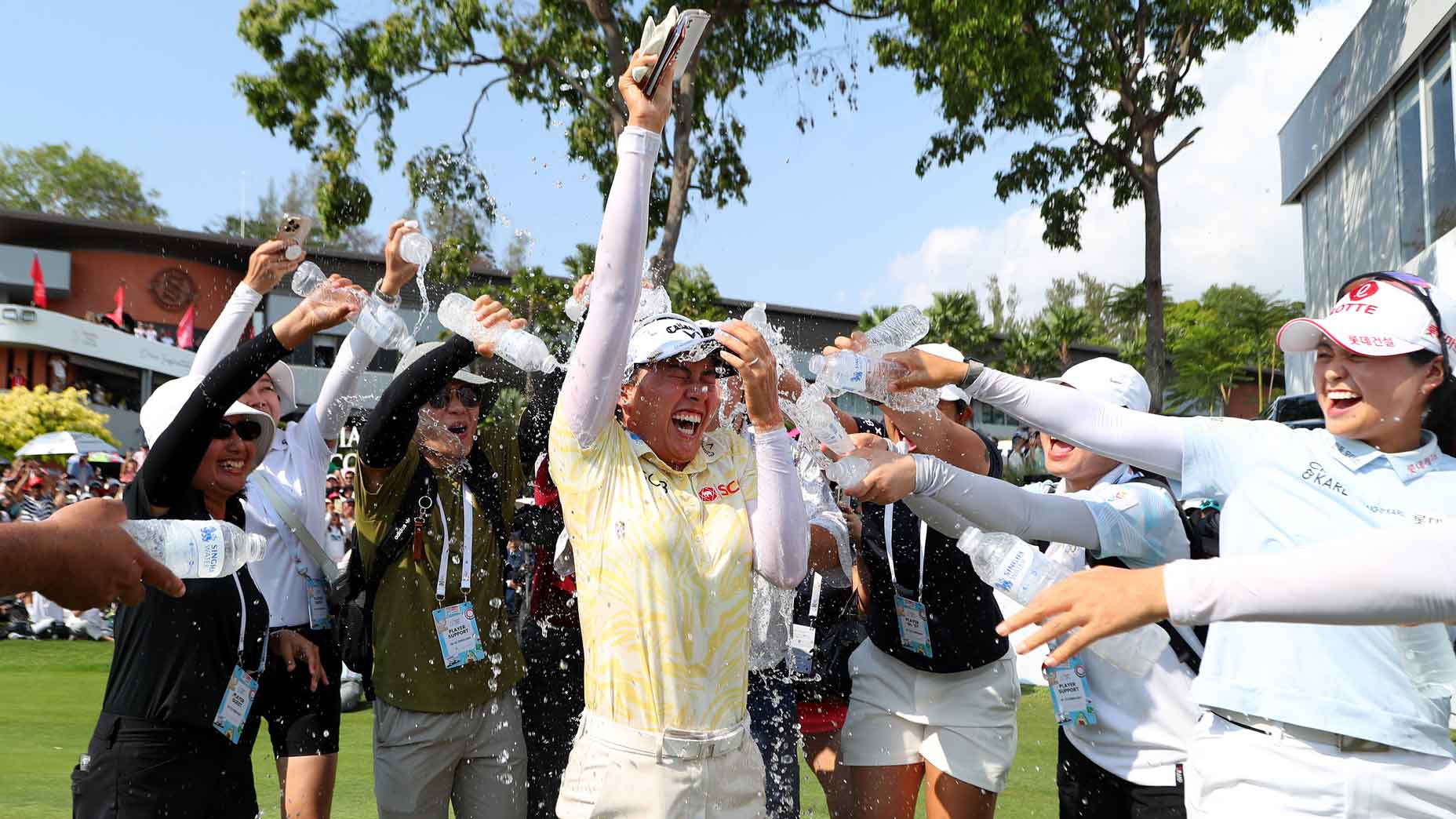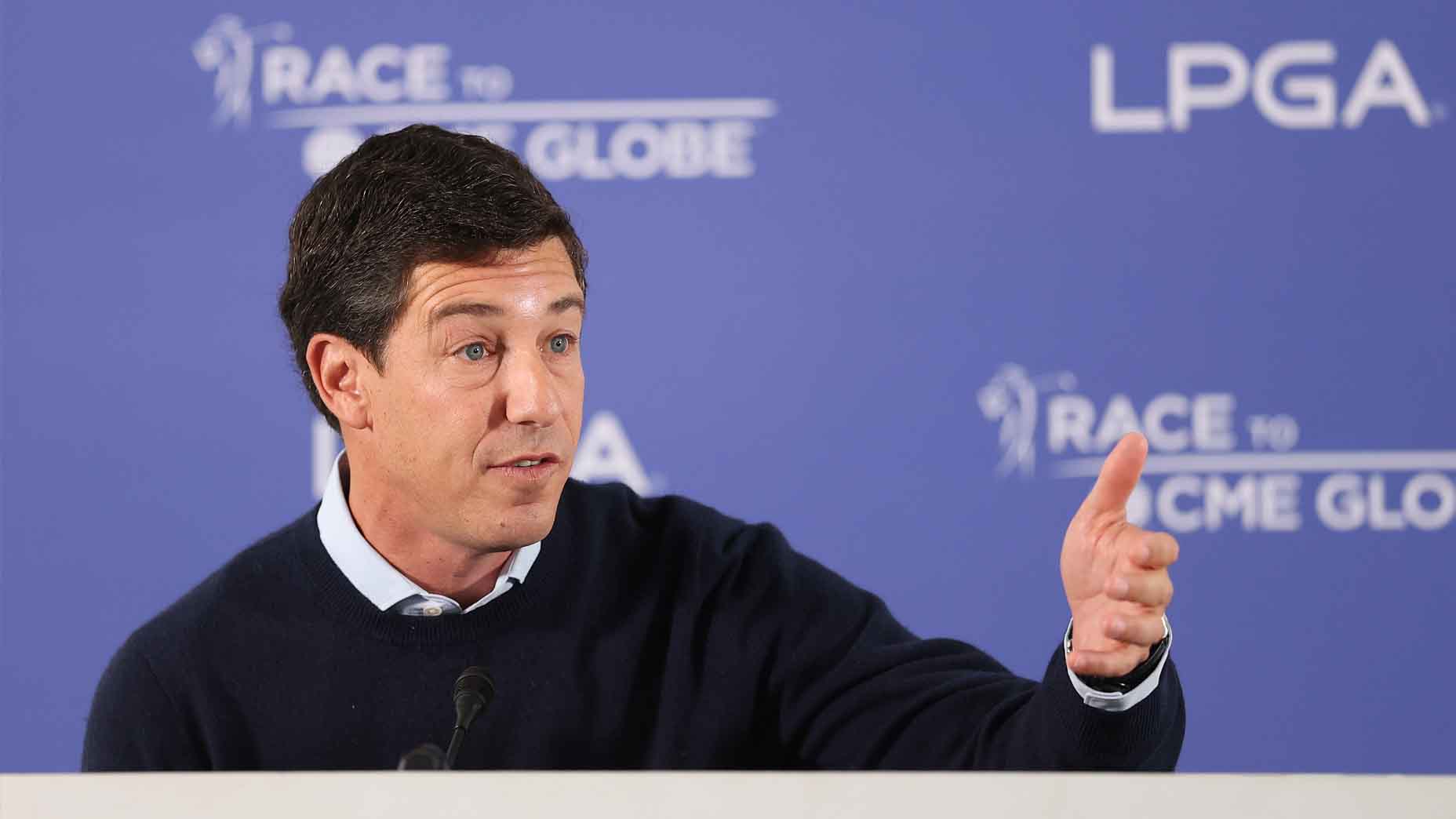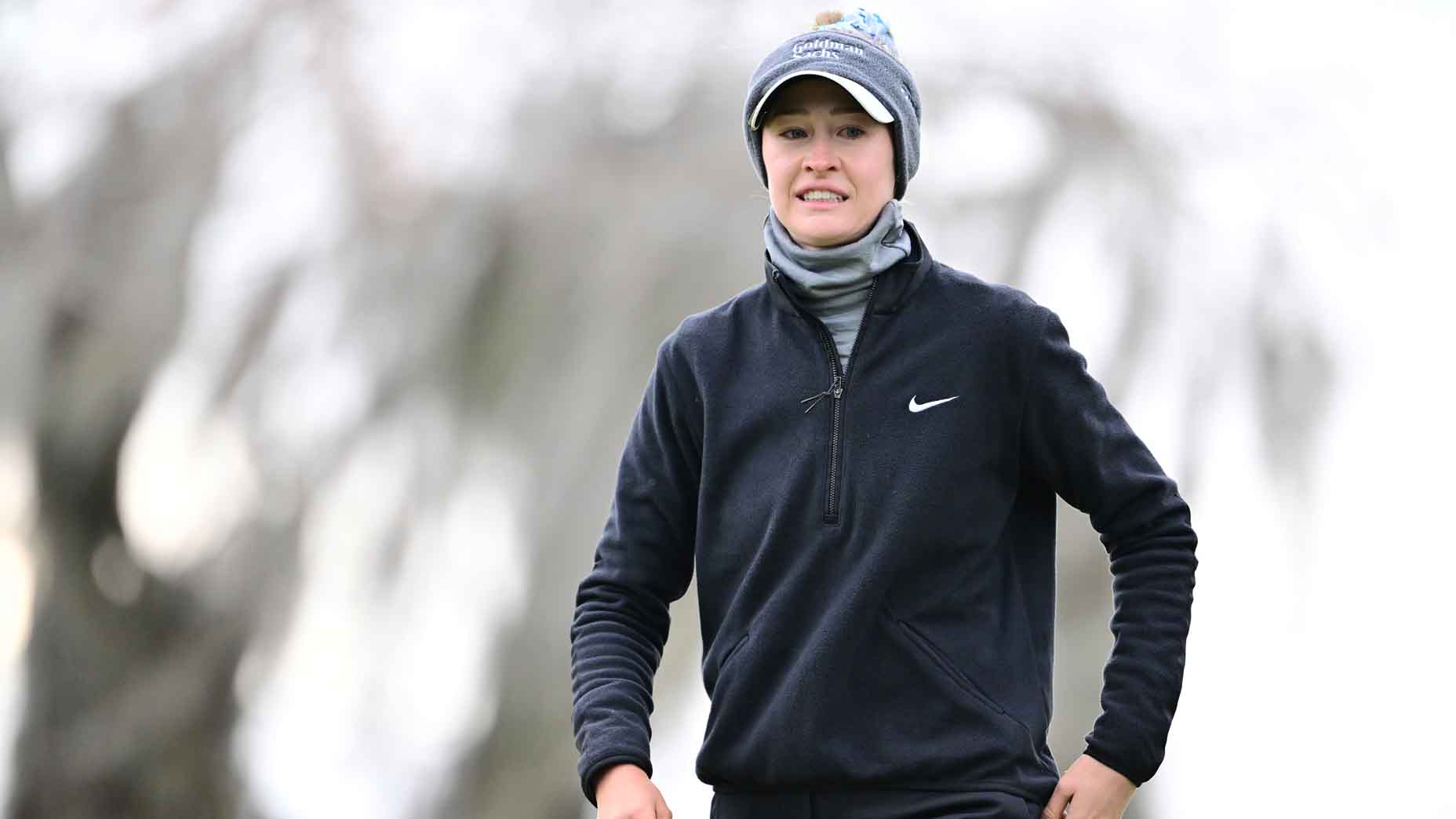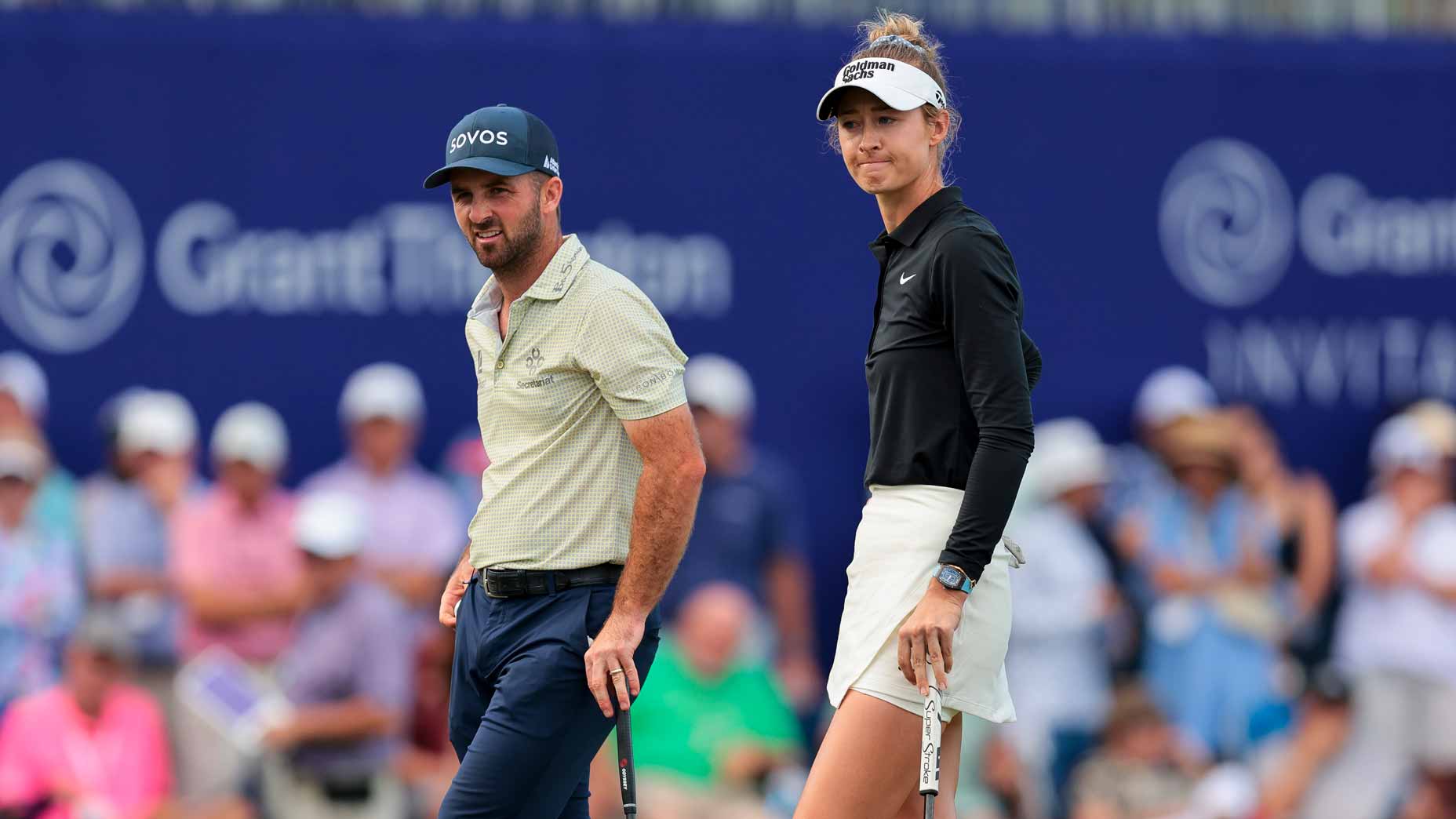Nelly Korda had just won her second major title, her fifth LPGA event in a row, and she was starting to get those same old questions again.
What is it going to take to elevate women’s golf? How can we get more people to watch the LPGA? When are more people going to come to your events?
She had answered these types of questions earlier that week in The Woodlands, Texas, and her answer remained the same days later.
“We need a stage,” Korda said. “We need to be on primetime TV, and we need to showcase the talent we have out here, which is a lot. We also need the support from not just the crowds but the television networks.”
Her callout of TV networks was well-received by fans after a fairly mediocre NBC final-round broadcast of the Chevron Championship, which seemed understaffed and was unable to fully engage viewers with graphics and storylines.
Yet it’s hard to look at the way Korda has performed in 2024, winning all but one of her six starts and grabbing a stranglehold on the top spot in women’s golf, and not draw comparisons to what Caitlin Clark did over the past four seasons for women’s basketball.
Clark, who just finished her career at Iowa, rewrote record books for scoring and assists for both men’s and women’s college basketball players. Behind a renewed marketing push from NCAA broadcast partner ESPN, Clark’s final appearance in the women’s NCAA title game drew 18.9 million viewers, the most for a basketball game at any level since 2019 and marking the first time ever the women’s championship game bested the men’s.
Why Nelly Korda was right to call out TV coverage after historic victoryBy: James Colgan
The final round of the Chevron drew just 936,000 viewers on NBC, even less than it did a year ago. Despite the PGA Tour’s RBC Heritage in a rain delay for much of the broadcast window on CBS that day, more than twice as many people still tuned in to that broadcast.
On the grounds at Carlton Woods, the people were out to see Korda make history. With the win, she became just the third LPGA player ever to win five events in a row. LPGA commissioner Mollie Marcoux Samaan told a group of reporters while walking down the 8th fairway that it may have been the best crowd at a domestic LPGA event since she took over as commissioner three years ago.
But there is still work to be done, and if there’s anyone who heard Korda’s call for a stage loud and clear, it’s Matt Chmura.
Chmura is the LPGA’s chief marketing, communications and brand officer, and he’s still just two years into the job. At the Chevron, Chmura sat down with GOLF.com to discuss what the LPGA is doing to capitalize on Korda’s play — she goes for her sixth straight win this week — what the league has learned, where it’s going, how it can get more eyeballs on the women’s game and more.
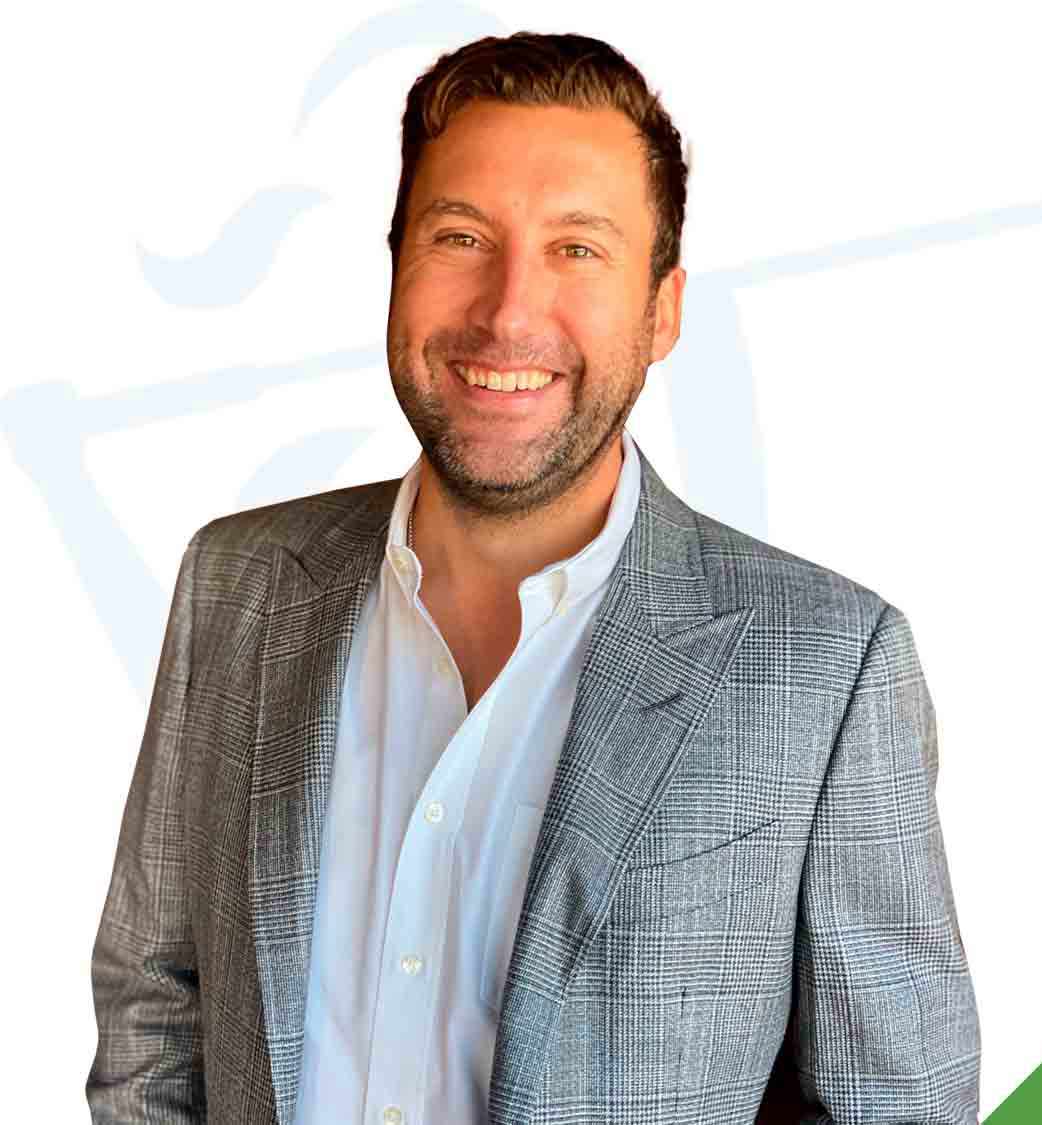
(Ed. note: This Q and A has been lightly edited for length and clarity.)
Jack Hirsh: So I understand your role is somewhat new to the LPGA. How so?
Matt Chmura: Yeah, it’s a role that, Mollie [Marcoux Samaan], our commissioner, kind of created and I don’t want to confuse things, because there were a lot of people doing some functions of marketing in the organization, but it was never kind of built out in a robust way. Not marketing per se, like we had people in creative. We had people in broadcast. We had some people in content. We had comms, but what we’ve really tried to do is create a contemporary marketing department.
It has four verticals within it: communications, broadcast content, marketing and then business intelligence.
A lot of my time in the first 20 months was kind of understanding our business, learning our business. Like seeing where the shortfalls were and then kind of developing the strategy to kind of lift where we are.
How Nelly Korda’s inner circle has helped power her historic runBy: Jack Hirsh
You just listed off four different verticals. What would you like to do that if or when you leave this role, you’d feel successful?
I think it’s like doing the foundational work and setting the infrastructure in place that anybody in the group and anybody on the team can leave and the Tour is in a good place to keep the momentum. Our athletes deserve the best and they deserve to have the proper infrastructure in place that can create that commercial value for them to drive toward equity and for us to drive toward equity. And you can’t skip steps along the way. Like our website. We are redoing our website and our app right now. It’s a massive investment for the tour. It’s something that hasn’t been done in almost a decade.
You mentioned leaving the LPGA in a good place. Do you think it’s in a good place now?
Yeah, I mean when you look at how much purses have grown from 2021 to now, it’s significant. I think we have a lot of work to be done across all areas of our business, and I think that we’re constantly striving to get better. And I think that we’re uber-focused on doing those foundational things. And then once we get that done, then I keep driving for better for our athletes. That to me is one of the coolest parts of what we’re doing because of the business structure of our entity, like the money that comes in through the commercial value that we create is going right to our athletes.
It’s no secret what’s going on in women’s sports with women’s basketball and Caitlin Clark. What goes through your head when you see the NCAA Women’s National Championship outrate the men’s title game?
It doesn’t matter if they’re male or they’re female or what sport they play, elite athletes are elite athletes, and I think people want to watch elite athletes. And that’s what our players are, is elite athletes. And I think you can see the investment that the broadcasters [ESPN] have made on that side, in both the production quality and the timeslots that they’re on and the marketing around it. You can see the emphasis the NCAA has placed on it, and if the infrastructure is there and the elite athletes are there, there’s a market for it.
It’s Nelly Korda time. How far can she take the LPGA?By: Sean Zak
What do you have to do to get Nelly Korda the stage she wants?
It goes into a lot of the work that we’re doing. It’s having the right digital platforms, having the right ways to reach all the different fans wherever they consume content. And so some of them are going to consume NBC/Golf Channel. Some of them are going to consume ESPN+. Some of them are going to consume our social channels. Some of them are going to consume content that’s on our web and our app. It’s getting all of those properties, maximizing the potential that we have in those properties and then letting our athletes perform. I think the stage is through all of those.
What we have to do is provide content on each one of those channels that’s compelling of our athletes, so that every different fan can consume the great play of our athletes through the channel they prefer. And I think for us, that’s a big focus is providing that stage. I think she’s spot on.
Korda has won four times this season, but only $1.2 million in prize money (she doubled that by winning the Chevron for her fifth straight win). That’s just a third of what Scottie Scheffler got for winning the Masters. How do we get closer to equal pay across genders?
It’s one thing to ask for equity. And certainly, we want equity, but we have to do our jobs to continue to provide that commercial value for brands. When you’re sitting in there saying, “We have X amount of money to spend on marketing, the LPGA is just as good of option as their male counterparts.” And so we need to drive towards that.
Nelly Korda at the Met Gala, Tony Finau’s big bash| Rogers ReportBy: Claire Rogers
It was reported the LPGA is now working with Naomi Osaka’s media company, Hana Kuma. What does that partnership entail?
Our athletes are so focused on what happens on the golf course, as they should be. But we know we need to help them with social presence, and they don’t necessarily have the teams that some of their male counterparts do to help them with that. And so, the Hana Kuma team has been a great partner so far. Again, like on my side of the business, we have SeatGeek, who’s handling our tickets. We have Aspire who’s selling our tickets. We have a company actually out selling tickets. The LPGA has never had that.
And so Hana Kuma is running two different kind of sides of a program for us. We’ve picked eight athletes (the names will be unveiled at a later date) that have been hand-selected that wanted to do that. They’re going to engage with Hana Kuma on really developing their social presence and better understanding all that goes into social media. The other part is that they’re running a program for all of our athletes who want to be involved, to just teach them more about social media and what’s effective and what is better for them and how they can lean into it and how they should use it.
Our athletes aren’t team sport athletes who sign a five-year deal. They have to perform to stay here week in, week out. So they’re laser-focused on what happens between the ropes. And so our job is to provide them as many tools as we can to help them be successful outside the ropes.
When you have an athlete like Nelly who’s won four (now five) in a row, does that make your job easier?
We’re witnessing generational greatness and I think that’s a good thing, obviously. But we have a lot of stars and elite athletes on this tour, so I think putting that pressure on Nelly is unfair, or suggesting that she is the one that needs to lift our tour up. This isn’t one person. It’s a collective effort. It’s the collection of athletes that are out here, that are elite, that stare each other down every week.
